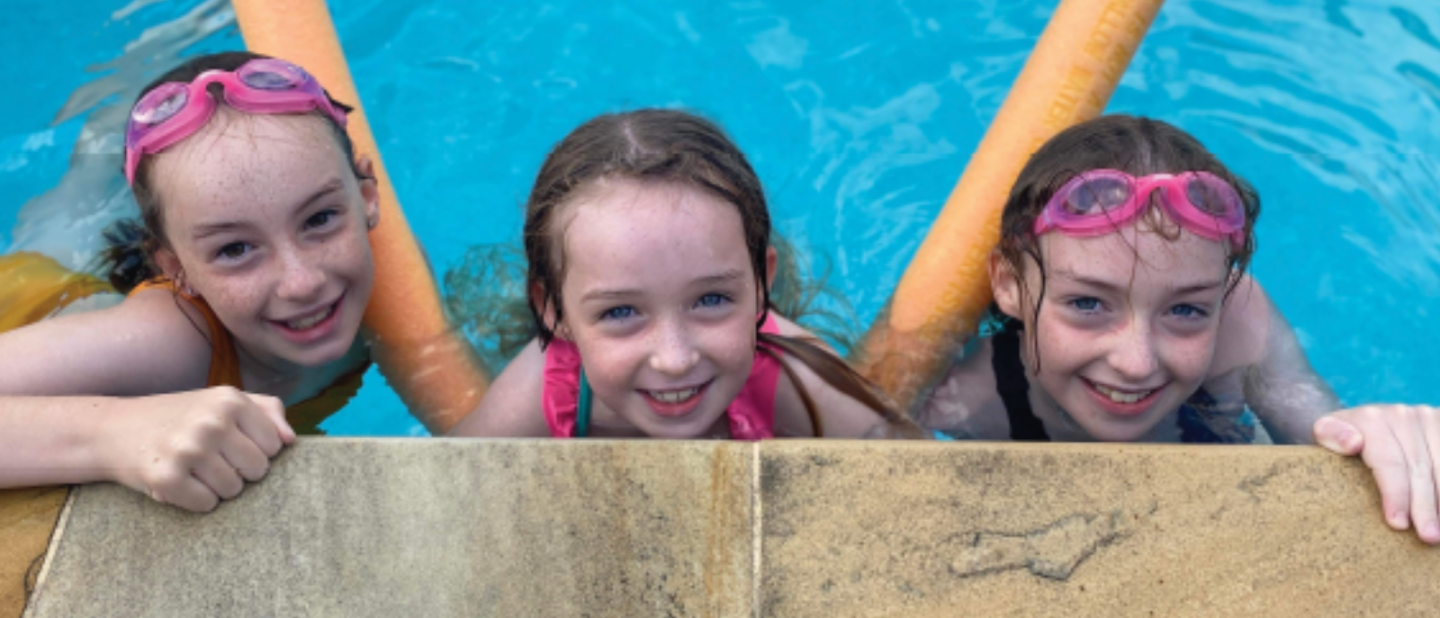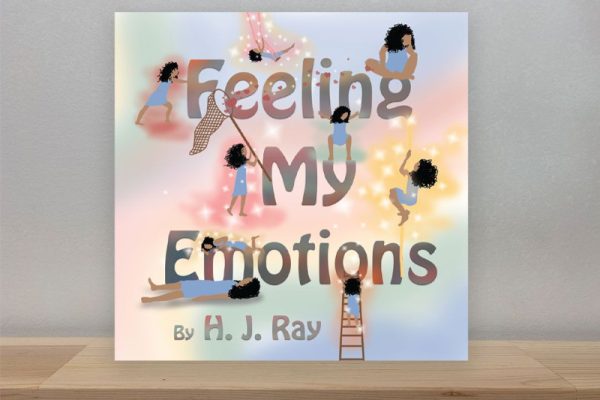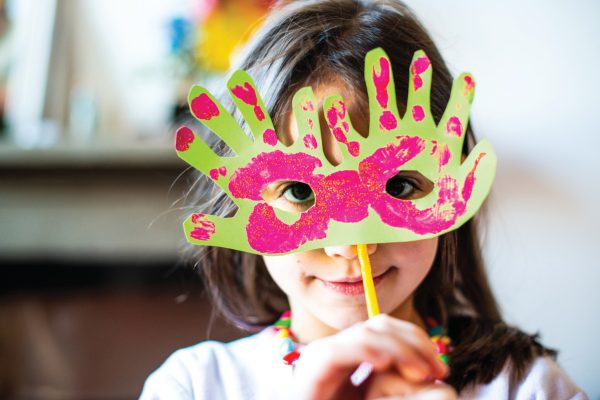
Sister Act
By Rebekah Devlin
Sarah and Eric are determined that their girls will be themselves, always.
It was a ham and cheese sandwich that led to Sarah’s search for a diagnosis for her second daughter, Lucy.
At 18 months, when asked what she wanted on her sandwich, Lucy was just repeating back whatever filling Sarah had said last, instead of saying her choice. And then she had a meltdown when her mum didn’t give her what she wanted, despite her asking for something else.
Sarah had a girlfriend over, who worked in early education and she suggested Lucy might be autistic.
So Sarah did what all good parents do, she hit google.
All of a sudden, the behaviours made sense.
The licking of every surface in public.
Hiding under the table at a play centre because she was overwhelmed.
The rigidity and need to control circumstances.
Her terror at camera flashes or the vacuum cleaner.
But like so many mothers of autistic girls, when she took her concerns to the GP, she was immediately dismissed.
“I’ve worked with kids on the spectrum and this little girl, she’s just bossy,” he told her, “she’s got a brilliant mind, she’s very clever, but this isn’t autism.”
It would take another 18 months, and another GP, before Lucy would be diagnosed by a paediatrician.
Armed with a series of home videos to back up her theory, she was taken aback when the paed then asked to see her five-year-old daughter, Piper.
“She said ‘I couldn’t help but notice her in the background of the footage, you need to bring her back because one is clearly at one end of the spectrum and it’s a big spectrum’,” Sarah says.
“I went home and watched the videos and said ‘oh my goodness, how did I miss all of that?’
“She’s lining up all her toys, she’s playing the same games over and over again, she’s super quiet, fussy with her food, everything that’s the other end of the spectrum to Lucy.”
Piper was diagnosed shortly after. “It was a relief to get an answer when Lucy was diagnosed, especially when you’ve been fighting for so long,” she says.
“And then reality sets in. This A-word is going to be in our lives for the rest of our lives. That gets daunting. The paperwork comes through alongside it, and that gets overwhelming. The judgment you get when you break the news to people and you get everyone else’s responses. And you think, ‘whoa now everyone’s got an opinion, no one wanted to help before, now everyone’s got an opinion about it and they all still disagree with it’. So you have to thicken that skin.
“But having the direction was a great thing. Being able to go, ‘ok, this is the path forward. What do we do now to get the kids help’?”
When Aurora was still a baby, Sarah immediately noticed her stimming in her pram, moving her wrists and poking her tongue in and out.
“She was six months to a year and my husband Eric and I we were ‘yep, there it is’,” she says.
Aurora was diagnosed by the time she was 2-and-a-half. Lucy was also diagnosed with ADHD at the same time.
In November last year, Sarah too was diagnosed with ASD and ADHD.
“Getting diagnosed as an adult is like someone handing you a pair of glasses and you refocus on every memory you’ve had and say ‘oh, now that makes sense. I wasn’t weird, I was overstimulated. I was autistic. I still am.”
People often ask what it’s like having three autistic daughters. Sarah doesn’t know any different.
All three girls – now 10, 8 and 6 – have different sensory and behavioural profiles.
For Piper, her autistic traits have been “a huge gift” when it comes to ballet.
“She’s learnt to channel it. She loves structure and that’s why she loves ballet, because they are definite moves, you’re either doing it or you’re not,” Sarah says.
Indeed Piper is showing great promise. She has been accepted into Queensland Ballet’s Foundations program and has performed in numerous productions for Brisbane City Youth Ballet.
Sarah and Eric have been very conscious of masking, and actively work on teaching the girls to be their authentic selves.
“That’s a big problem for a lot of girls – they put this mask on, and act the way everybody thinks they should and then they go home, rip the mask off and meltdown and let the parents deal with that,” she says.
“We say, ’yes, you’ve got your differences, but we’re not focusing on that, we’re focusing on who you are’.
“If people don’t take you as you are, for who you are, then they’re just not the people for us.
“That’s a constant journey though, because you’re constantly meeting new people, and so you have to keep reinforcing it.”
It’s a lesson Sarah is still learning also.
“I used to get upset socially with mum friends, if they’d go out and didn’t include me… I used to get caught up on things like that. Now I’ve realised they’re simply not my crowd,” she says.
“Learning to take this mask off has allowed me to attract a whole new crowd of people around me – people who appreciate me for who I am, and enjoy me for who I am. They get me.”
Which is not to say the journey has always been easy. Of course, there have been moments that have taken Sarah to her limits, and then pushed her beyond them.
But she chooses to focus on all that autism brings to her family’s lives. Lucy, she reckons, will run a company one day, Piper has her ballet, and Aurora, she thinks, will either do something creative, or work with animals.
Sarah herself is an astonishingly talented seamstress who makes elaborate pancake tutus, despite never having been taught how to sew.
She simply turned garments inside out, used the girls as models and created the intricate multi-layer costumes.
“I hate the word disorder in Autism Spectrum Disorder, it’s not a disorder, it’s a factor. If we have to call it anything, it’s a factor, it’s just a part of my personality. Does my factor bother anybody else? Well, I hope not, not negatively anyway, but I hope it does positively,” she says.
“Autism is not something to be feared, obviously it comes in different levels and some people have more challenges than others on the spectrum, but we each have a gift as well that comes with it – it’s just our rollercoaster is bigger and lower than yours.”






